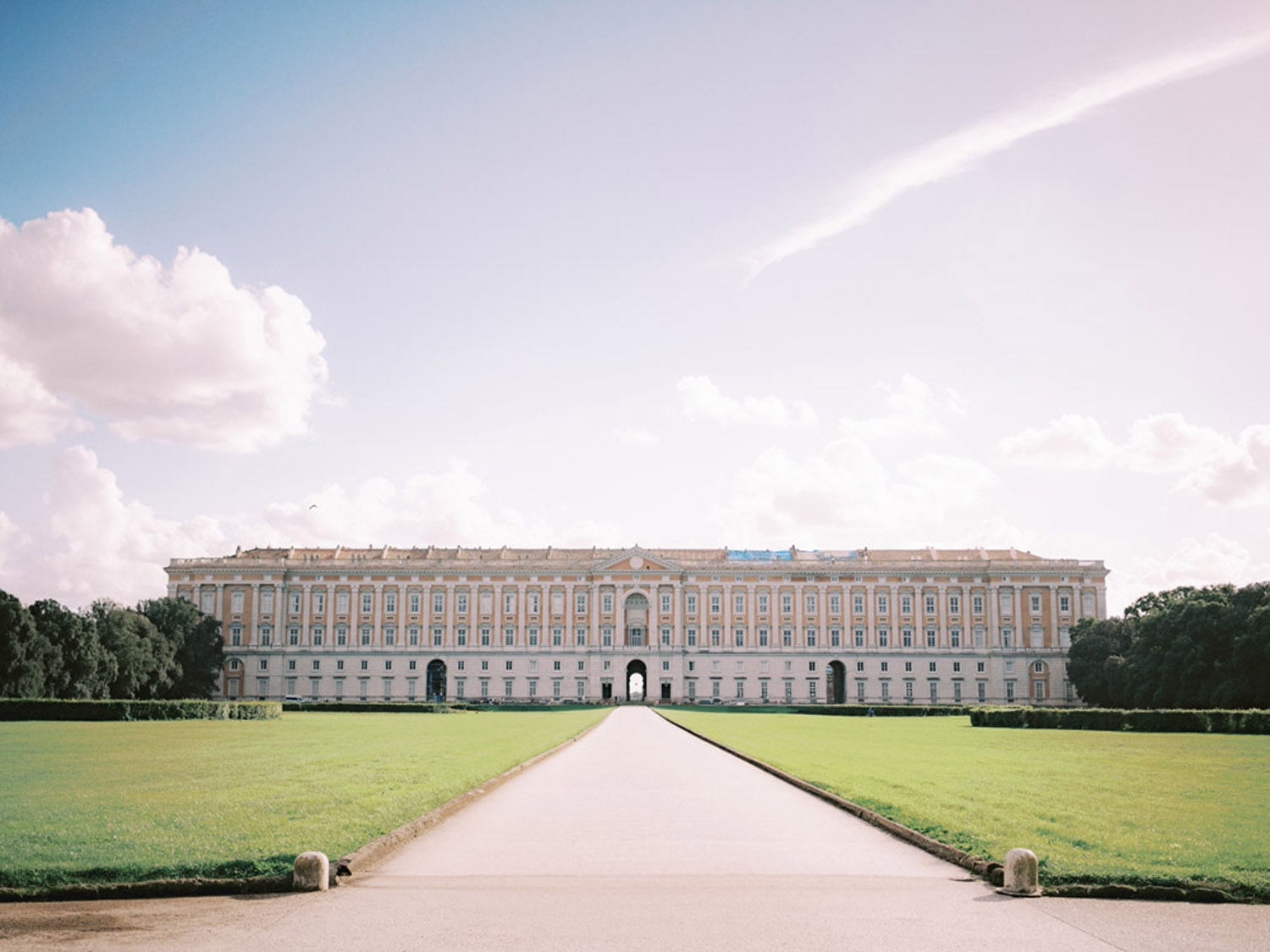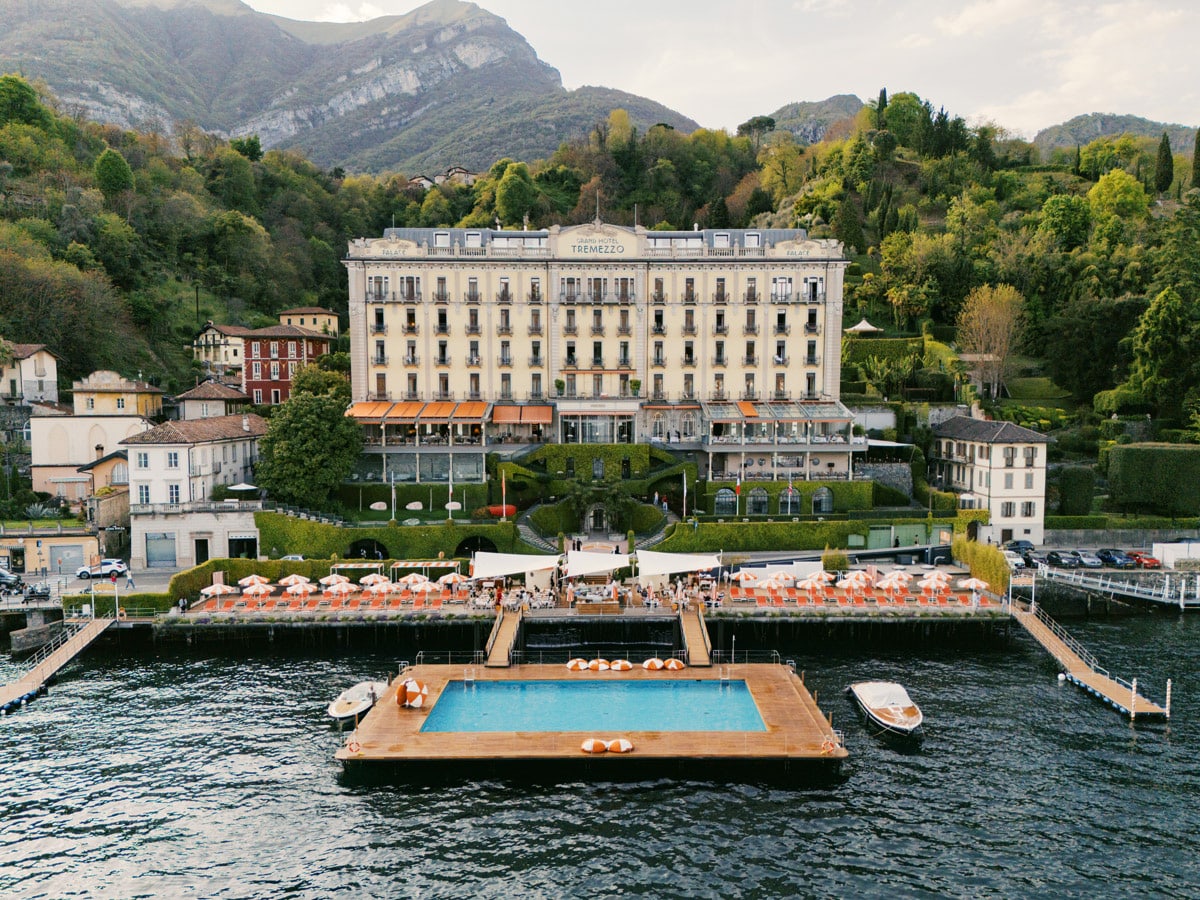Just a short drive from Naples, you will find one of Italy’s most stunning architectural wonders—the Royal Palace of Caserta. It is the largest palace in Europe and served as the residence of the Bourbon rulers of the Kingdom of Naples.
Larger than the Versailles, this UNESCO World Heritage Site is a must-see destination when around Naples!
Initially, the Royal Palace was located on the waterfront in central Naples, making it vulnerable to invasions and riots. The ever-present threat of Mount Vesuvius also loomed large. Seeking a safer location, Charles VII looked to Versailles for inspiration, aiming to outdo the Sun King. Much like Versailles, Caserta began as a humble hunting lodge before undergoing a magnificent transformation.
The design of the palace is a masterpiece of Baroque and Neoclassicism, combining intricate details with majestic scale. Covering over 200,000 square meters, the Royal Palace has 1,200 rooms, 34 staircases and 1,742 windows. The facade, with its symmetry and elegant proportions, is only the beginning of the luxury that lies within.

The sheer scale of the Royal Palace of Caserta strikes one immediately. Unlike Versailles, the palace in Caserta is laid out in a grid pattern resembling a solid, imposing block, feeling more like a formidable fortress than a pleasure palace. The facades showcase neo-Renaissance elements, with alternating pediments and fluted pilasters.
The balustraded skyline and almost monotonous facade were designed to display the power of absolute monarchy, reminiscent of the Royal Palace of Madrid but on a grander scale.




King Charles VII of Naples, the visionary behind the Royal Palace of Caserta, ruled during a period when the Kingdom of Naples and Sicily frequently changed hands among major powers. In the 18th century, it was the House of Bourbon from modern-day France that took control. Today, it’s hard to imagine Neapolitans bowing to foreign rulers, but Charles VII was one of the most “enlightened” monarchs in Europe, gaining immense popularity through numerous political and economic reforms. He streamlined bureaucracies and established a functional judiciary, winning the favor of his subjects.
Among his notable reforms was the principle of “Regalism,” which asserted the monarch’s supremacy over the church and classified the clergy as a professional class. Charles VII took a hard stance against the clergy’s entrenched interests, stripping away their tax exemptions on large tracts of land. This spurred industrial development and filled the state treasury, paving the way for showcasing newfound wealth through the construction of the largest palace in Europe.





The forecourt of the palace complex has the layout and scale of a military parade ground, projecting absolute political power.









Status and hierarchy in the architecture
You may already know I am fascinated by the role of status.
Once you start to notice the emphasis on status, it’s hard to overlook it. What’s truly striking about the layout of the ground-floor rooms is their linear hierarchical arrangement. The sequence begins with waiting rooms for the guards, progresses to those for diplomats, and then moves on to spaces for royal advisors, each more splendid than the last. All these areas lead to the ultimate and most magnificent room: the throne room.















The Gardens
Beyond the palace itself, the Royal Palace of Caserta is known for its extensive gardens, which cover 120 hectares.
After exploring the interiors, I highly recommend renting a bike to tour the gardens.
The Italian Garden, located closest to the palace, is a formal garden with symmetrical layouts, fountains and manicured lawns. Further away from the palace, the English Garden offers a more natural landscape, with winding paths, man-made lakes and picturesque ruins. It was designed to create an ideal version of nature, offering visitors a peaceful escape from the formality of the Italian Garden.
One of the most impressive features of the gardens is the Great Falls, a dramatic waterfall that cascades down a series of levels into a large basin. The Fountain of Diana and Actaeon, located at the top of the waterfall, is particularly notable for its dynamic composition and elaborate detailing.


Visiting the Royal Palace of Caserta
Caserta is easily accessible from both Naples and Salerno, with regular train services. The journey takes about 40 minutes by train from Naples, making it a convenient day trip destination.



